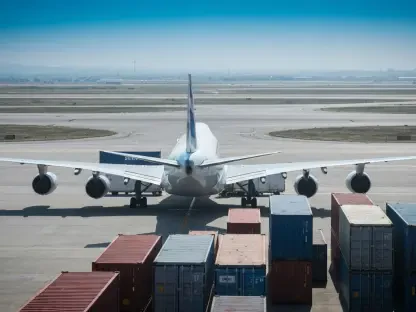South Korea’s burgeoning interest in Central Asia’s rail logistics sector marks a significant strategic development aimed at diversifying its supply chain routes. Unlike China’s well-established footprint in the region, South Korea’s foray is relatively new but growing in importance. With investments focused primarily in Uzbekistan and Tajikistan, South Korea is cautiously yet strategically positioning itself to reduce its dependency on maritime routes. These initiatives aim to circumvent the vulnerabilities associated with key maritime chokepoints like the Malacca Strait, which has become increasingly contested. In a world where geopolitical tensions, such as potential Chinese naval exercises around Taiwan, are rising, alternative logistics pathways are not just beneficial but essential for maintaining economic stability and security. A notable development occurred in 2023 when South Korea’s national rail operator secured a contract to assist in the construction of a rail system in Tajikistan, signifying a proactive approach to security through infrastructure investments. Simultaneously, South Korean company Ecofarm Global is making strides in Uzbekistan by establishing a state-of-the-art logistics center and rail terminal. The comprehensive strategy reflects a long-term vision that prioritizes diversified and secure land-based routes for logistics and supply chain management.
South Korea’s Strategic Investments in Uzbekistan and Tajikistan
South Korea’s strategic foray into Uzbekistan and Tajikistan’s rail infrastructure reflects a deliberate move to build robust logistics channels. These nations stand as pivotal points in Central Asia for increasing economic interaction and connectivity. In Uzbekistan, South Korean company Ecofarm Global has embarked on building a comprehensive logistics center and rail terminal, designed to streamline and secure the movement of goods. This project, valued at $50 million, highlights the importance of Central Asian logistics in South Korea’s broader economic strategy. Uzbekistan, with its central location, functions as a natural hub for the region, offering seamless land routes to its neighbors. By establishing a foothold there, South Korea can enhance its logistical capabilities and increase its regional influence. On the other hand, Tajikistan has also garnered South Korean attention. In 2023, South Korea’s national rail operator secured a contract to assist in the construction of a Tajikistani rail system. This $4 million feasibility study aims to explore the possibility of connecting Tajikistan to Afghanistan, an ambitious project that extends South Korea’s interest far into Central Asia. Despite these investments being modest compared to China’s, they signal a robust, scalable approach towards reducing dependencies on volatile maritime routes.
Reducing Maritime Dependencies and Enhancing Security
One of the strategic reasons behind South Korea’s investments in Central Asian rail infrastructure is the pressing need to reduce dependency on maritime routes. The Malacca Strait, a vital maritime chokepoint, has increasingly become a focal point of geopolitical tensions and security risks. Given the possibility of Chinese naval exercises around Taiwan disrupting key sea routes, alternative, land-based logistics pathways are becoming more attractive. By fostering rail and logistics infrastructure in Uzbekistan and Tajikistan, South Korea seeks to circumvent the inherent vulnerabilities of sea routes. The emphasis on land-based routes aims to provide more secure and stable alternatives for South Korean supply chains. This diversification strategy offers resilience against geopolitical disruptions, allowing South Korea to maintain steady economic growth and operational continuity. The potential for enhanced logistics security extends beyond mere economic considerations; it encompasses broader strategic interests, including national security and regional influence. In these efforts, the feasibility study for the Tajikistan-to-Afghanistan rail connection represents a forward-looking vision. Although currently in its nascent stage, this initiative underscores South Korea’s commitment to building an interconnected, secure, and multifaceted logistics network.
Future Opportunities and Long-term Vision
South Korea’s growing interest in Central Asia’s rail logistics sector represents a crucial move to diversify its supply chain routes. While China’s presence in the region is well-entrenched, South Korea’s efforts are newer but increasingly important. Focused mainly on investments in Uzbekistan and Tajikistan, South Korea is strategically positioning itself to lessen its reliance on maritime routes. This move seeks to avoid the risks linked to major maritime chokepoints like the Malacca Strait, which has become more contested over time. In today’s world of rising geopolitical tensions, such as potential Chinese naval activities around Taiwan, having alternative logistics routes is vital for economic stability and security. A notable development in 2023 saw South Korea’s national rail operator win a contract to aid in building a rail system in Tajikistan, indicating a proactive approach to ensuring security through infrastructure. Concurrently, South Korean company Ecofarm Global is advancing in Uzbekistan by setting up a cutting-edge logistics center and rail terminal. This comprehensive strategy underscores a long-term vision focused on diversified, secure land-based logistics and supply chain routes.









